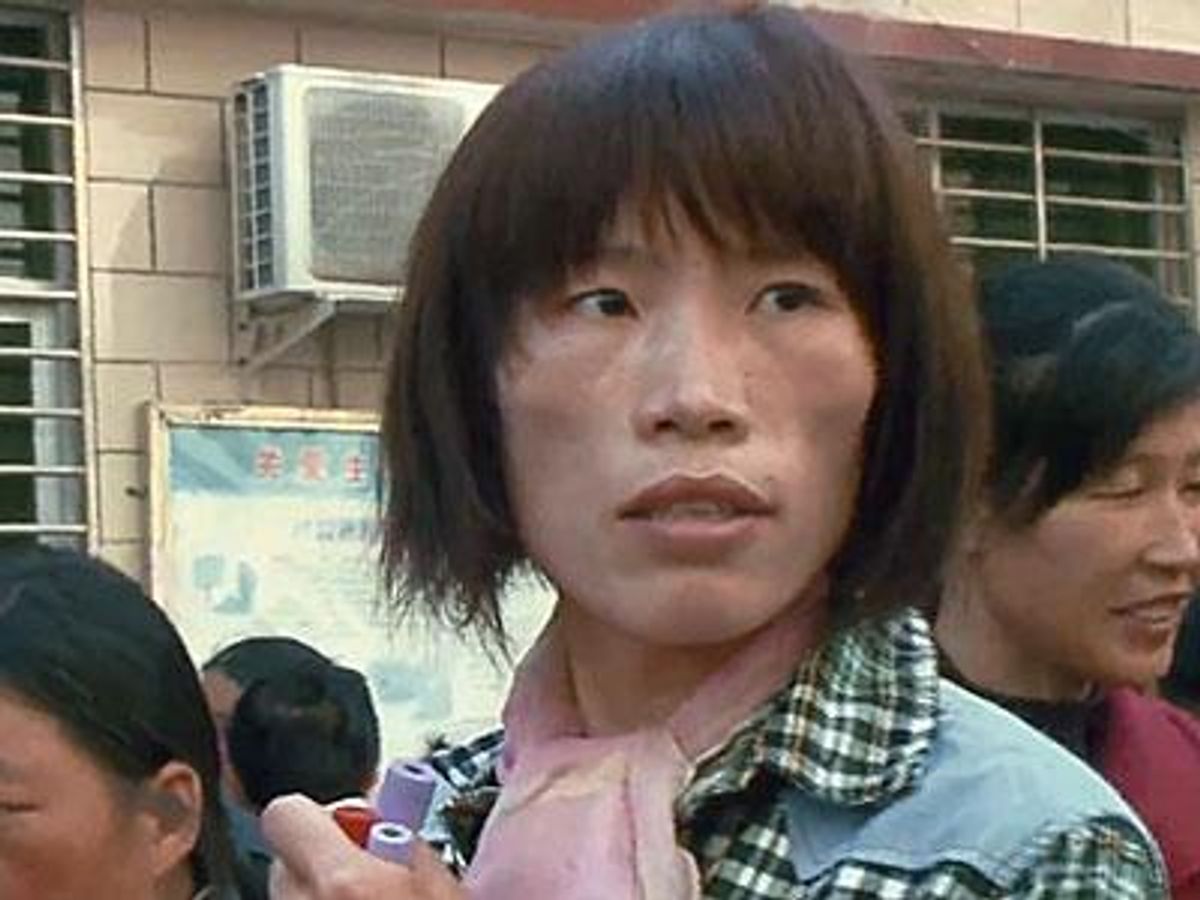Liu Ximei, a Chinese HIV and AIDS activist, got dealt several crushing blows in her life. China has a strict single child policy. The second born, Liu was given up for adoption. Then at the age of 10, she got her hair caught in harvest machinery. The machinery tore her scalp off. She was taken to a local hospital where she was given plasma. As a result, she ended up contracting HIV (activists say that many of the 850,000 people with HIV in China contracted it from offically promoted blood plasma). Already disfigured, the disease caused her right buttock and leg to severely atrophy. After she developed AIDS, Liu started Ximei’s Home for Mutual Help, a community house shared by several other HIV-positive individuals.
Chinese filmmaker Chen Shou and dissident artist and social activist Ai Weiwei filmed her life for the riveting documentary, Stay Home. The movie opens with the sounds of traffic and roosters on a black field that dissolves into a silhouette of her house at dawn. A quick cut shows an image of a disheveled bed and the sounds of snoring. A figure unfolds out of the bed and sits still on the edge of the bed. As she wakes-up, the first action she takes is to turn the camera, which is pointed directly at the bed, away to allow her some privacy.
Weiwei holds no punches in showing the devastation wrecked on Liu’s body every day. Even something as simple as walking is made difficult due to her handicaps. Her body seems to bend and lunge with each step, like a broken marionette. One of the film’s most heart-wrenching sequences records the effects of her interferon treatment. After Liu takes the shot, the film shows her complaining of a headache on the way home, than sitting in a fetal position with dry heaving and finally, she is laid in her bed and calls for her fever pills. She collapses on her side. Weiwei terminates the sequence with her declaration, “No more interferons.”
The camera's position creates a sense of Liu's suffering as it is cast up from the bed to the ceiling. The medication she needs to stay alive also renders her completely helpless. This fragility is one aspect of the central irony of the film. How the state can be threatened by such a frail and pained person befuddles the viewer.
The movie also details the surreal relationship between the state of China and its celebrity dissidents. Liu is utterly dependent on the government for her liberty and health. She states that the government has a list of 10 charges on file against her. If she provokes too much, she can be arrested, charged and jailed all in one step. All of her medications come through the government and can be revoked at their leisure. Therefore, she has to measure all of her protest and provocations.
While not imprisoned, her life is monitored and controlled. The movie’s antagonist is Gao Guanghui, the Huazhong Village moderator. He describes himself as the middle-man, the person who takes the demands of the people and elevates them to the city. He acts like an unwanted supervisor, always shadowing her moves. In an interview he states that her petitions generate action, which upsets the government. Their relationship is ambiguous. She has some power — and seems to be a force for change. At times their interaction is adversarial; other times it is seemingly friendly, even flirtatious. It is a fascinating dance between subject and subjugator. The inescapabilty of her political situation parallels her illness. Liu will have HIV, and be scrutinized by the government, until the day she dies.
Stay Home documents Liu’s two fights — one against her illness and the other against the provincial government. In both engagements, Liu seems a hesitant and unsure champion. Weiwei’s unflinching portrait achieves two ends. First, it provides a realistic document on what AIDS does to the people who have it. Second, it makes Liu’s plight all the more painful.
In one touching scene she talks about her hardships and what she has gained, while she fidgets with some leaves around her. It is clear that she has come to terms with her lot. It seems somewhat clear that if she could live a healthy and completely anonymous life, she would. This gives the portrayal of Liu a depth of humanity. She is not an altruistic superheroine. She is flawed and hurt. The movie's ultimate irony is that it is this fragility and her sameness that ties her with her audience. It excites empathy. The audience sees how easily her lot could be their lot.

















































































